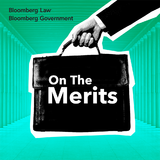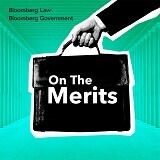Ornua Must Face Claims Over PFAS in Kerrygold Butter Packaging
Ornua Foods North America Inc. failed to convince a federal court that a class action alleging that its Kerrygold Butter products contain PFAS should be dismissed on the pleadings.

Future decisions the EPA makes about whether chemicals are so risky that their commercial uses must be restricted will be made using statutory interpretations and policies the Biden administration already has been using, according to a final rule the agency released Tuesday.
The Biden administration is taking steps to jump-start the fledgling offshore wind sector, outlining a five-year leasing plan that would include turbines in the far reaches of the Pacific.
California’s Northern Chumash Tribal Council and wind-energy companies leasing sites near Morro Bay have reached a landmark agreement that may ease a path for developing offshore wind farms.
The U.S. Environmental Protection Agency failed to act when New York didn’t implement a plan addressing its noncompliance with Clean Air Act standards, according to a new lawsuit Tuesday.

Recent budget cuts mean the EPA’s chemicals office will have to more carefully pick and choose what it can focus on, the department’s head told staffers on Tuesday.



In Nevada, can a balance be struck between an endangered toad species and the pressing need to address climate change? The future of NEPA, a 54-year-old environmental law, may hold the answer.
Ornua Foods North America Inc. failed to convince a federal court that a class action alleging that its Kerrygold Butter products contain PFAS should be dismissed on the pleadings.
Solar manufacturers are asking the US government to slap duties on $12.5 billion of imported equipment from Southeast Asia, setting the stage for a sweeping trade probe that threatens to make power projects more expensive.
The Biden administration is laying out more of its vision for decarbonizing the nation’s freight industry, including plans for standardizing charging infrastructure for electric trucks and accelerating the adoption of emission-free big rigs.
Child labor is a sensitive and hard-to-measure risk that typically stays hidden in the far reaches of corporate supply chains—and climate change is only making it worse.
The Biden administration is taking steps to jump-start the fledgling offshore wind sector, outlining a five-year leasing plan that would include turbines in the far reaches of the Pacific.
Columnist David Lat explains the controversy behind universal injunctions and their impact on public policy and judicial power.
Investors rejected <-rte-company state="{"_id":"0000018f-1071-d583-afbf-d2fdb9ec0000","_type":"00000160-4b23-d8bd-adfd-4b3348fd0000"}">Woodside Energy Group Ltd.’s climate strategy in an advisory vote as Australia’s largest energy company attempts to trim emissions while also expanding production of oil and natural gas.
China’s carbon price topped 100 yuan ($13.80) for the first time since the market launched in mid-2021, as large polluters add purchases before the introduction of tighter standards.
There’s currently insufficient production capacity to make biofuels suitable for the shipping sector, making it a challenging option as a sustainable fuel, said Ilyas Muhammad, head of green fuels at Hapag-Lloyd AG.
California’s Northern Chumash Tribal Council and wind-energy companies leasing sites near Morro Bay have reached a landmark agreement that may ease a path for developing offshore wind farms.




Supreme Court Today, Vol. 92 No. 40, pages 3275-3286, dated April 25, 2024, is now available. A link to the PDF version can be found in the Related Documents field.
Chief Executive Officer Sundar Pichai’s recent memo to workers, sent amid the latest round of discontent at the company — this time over the company’s $1.2 billion contract (shared with Amazon.com Inc.) to provide cloud services to Israel. By Tuesday, at least 50 employees had been fired for involvement in several protests at Google’s offices.
Welcome to Bloomberg Law’s Wake Up Call, a daily rundown of the top news for lawyers, law firms, and in-house counsel.
Tougher federal limits on miners’ exposure to toxic silica dust are creating a slew of compliance challenges for mine operators, from new air sampling and notice requirements to medical monitoring mandates.
After a warning last month that Gucci sales had slumped, investors knew that Kering SA’s first-quarter performance wasn’t going to be pretty.
Get the latest legal, regulatory, and enforcement news and analysis, as well as in-depth business and industry covering in the following areas: